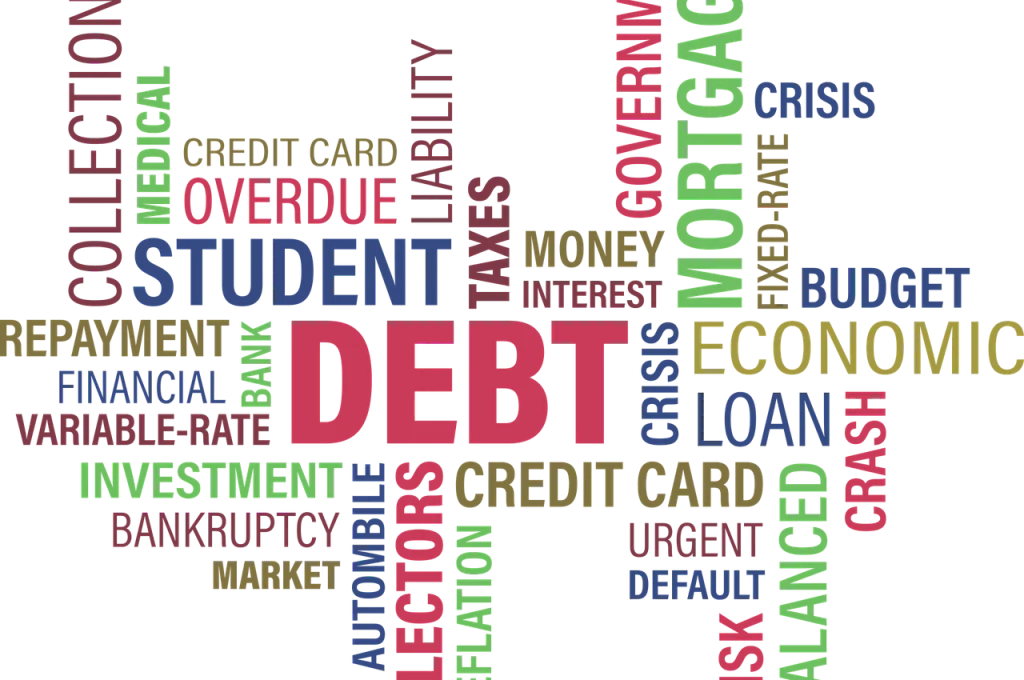Understanding the concept of honours student loans written off is crucial for Welsh students seeking higher education, especially for postgraduate and EU students dealing with private debts. This programme offers the potential to have a portion or even the entirety of one’s student loans forgiven, providing financial relief and an opportunity to start anew. It is especially beneficial for individuals struggling with their repayment threshold or private debts, as it can help alleviate the burden of funding their education while managing other financial obligations such as mortgage payments. However, before starting this path, it is essential to consider the potential drawbacks and weigh them against the benefits of pursuing a course that aligns with your interest and work. Here’s some advice to help you make an informed decision. This blog post explores the implications of loan forgiveness, specifically in the context of student finance and the advantages and disadvantages it presents. It also delves into the role of the student loan company in managing deferment and addressing arrears. By examining both sides, readers can make informed decisions regarding their student loan situations, including the interest rates they must pay. Postgraduate students need to know the interest rates, as they can significantly impact their financial future. Please review the fact sheet provided to learn more about these rates and how they affect student loans.
Understanding the Process of Student Loan Repayment
Step-by-Step Guide to Navigating the Student Loan Repayment Process
Repaying student loans can seem overwhelming, but you can navigate the process smoothly step-by-step. Here’s a breakdown of what you need to do:
-
Understand your loan terms: Familiarize yourself with the details of your student loan, including interest rates, repayment threshold, and repayment period. This information will help you plan your finances accordingly.
-
Could you determine your graduation date and start planning your student loan repayments? Knowing when you’ll graduate is crucial because it marks the start of your postgraduate loan repayment journey. Please remember your student loan overpayments and consider the impact of age on your repayment strategy. So that you know, this date will be necessary to calculate when your repayments will begin.
-
Start working and earning an income: Once you’ve graduated and secured employment, keep track of your income, as it significantly determines how much you’ll need to repay each month towards your student loan repayments.
-
Explore different repayment plans: Various options are available for repaying student loans, such as income-contingent plans or fixed monthly payments. Research these pay options and choose one that aligns with your financial situation and goals.
-
Set up an income-contingent agreement (ICA): If you opt for an income-contingent plan, set up an ICA with HM Revenue & Customs (HMRC). This agreement allows them to calculate and collect repayments directly from your salary.
Explanation of Different Repayment Plans Available for Borrowers
Borrowers have several repayment plans at their disposal:
-
Income-Contingent Repayment Plan (ICR): This plan adjusts your monthly repayments based on your income level.
-
Fixed Monthly Payment Plan: With this option, borrowers pay a fixed amount each month until their loan is fully repaid.
-
Graduated Repayment Plan: This plan starts with lower monthly payments that gradually increase.
-
Pay As You Earn (PAYE) and Income-Based Repayment (IBR): These plans calculate your repayments based on a percentage of your income.
Each plan has pros and cons, so it is essential to evaluate them carefully and choose the one that best suits your financial circumstances. Please stay informed about any changes in loan terms and conditions to ensure you’re making the most informed decisions regarding repayment.
Exploring Circumstances for Student Loan Cancellation
Identifying specific situations where student loans can be cancelled
In certain circumstances, student loans can be withdrawn or written off. These situations vary and depend on different factors. One such case is if a borrower becomes an honours student. If borrowers achieve honours in their studies, they may be eligible for loan cancellation.
Highlighting eligibility criteria for loan cancellation programs
To qualify for loan cancellation programs, borrowers must meet specific eligibility criteria. These criteria may include age-related cancellations or fulfilling certain circumstances related to their funding or studies. For example, some cancellation programs may require borrowers to provide evidence of completing a particular course at a university.
Discussing how borrowers can explore options for cancelling their loans
Borrowers who wish to explore possibilities for balancing their loans should start by gathering all the necessary details and information about the available cancellation programs. They should contact their loan provider or visit the official government website to obtain a fact sheet that outlines the requirements and procedures.
Once armed with this information, borrowers can assess whether they meet the eligibility criteria for cancellation programs. It’s important to note that each program may have its threshold and customer reference number (CRN) requirements.
If borrowers believe they meet the necessary criteria, they should gather all relevant evidence and documents supporting their case. This might include confirmation from their university regarding their honours status or other proof requested by the loan provider.
By taking these proactive steps and exploring available options, borrowers increase their chances of having their student loans cancelled under specific circumstances.
Laws and Conditions for Honours Student Loans Written Off
Legal Provisions for Loan Forgiveness
The process of having honours student loans written off involves specific legal provisions that govern this forgiveness program. These laws outline the eligibility criteria and conditions borrowers must meet to qualify for loan cancellation.
Specific Conditions for Loan Write-Off
Individuals must fulfil certain conditions to have their honours student loans written off. These conditions typically include:
-
Completion of an undergraduate degree with honours: Borrowers are generally required to complete an undergraduate programme with honours status to be eligible for loan forgiveness.
-
Meeting academic performance requirements: Students are usually expected to maintain a minimum grade point average (GPA) or achieve a specified level of academic excellence throughout their studies.
-
Repayment history and duration: Some loan forgiveness programs may require borrowers to repay consistently over a certain period before becoming eligible for write-off.
-
Employment in specific fields: Certain programmes may require borrowers to work in designated areas, such as public service or non-profit organizations, for a predetermined period after graduation.
Additional Requirements and Restrictions
In addition to the conditions above, additional requirements or restrictions may be associated with the honours student loan write-off program. These could include:
-
Income limitations: Some forgiveness programs may consider the borrower’s income level when determining eligibility. Individuals earning above a certain threshold may not qualify.
-
Application process: Borrowers seeking loan cancellation may need to submit an application demonstrating compliance with the necessary criteria.
-
Documentation verification: Applicants might be required to provide supporting documentation, such as academic transcripts or employment records, as evidence of meeting the eligibility requirements.
It is crucial for borrowers considering honours student loan write-off options to understand and comply thoroughly with the rules governing these programs.
Repayment Options: Early Payment and Payback Methods
Benefits of Making Early Repayments on Student Loans
Making early repayments on student loans can have several advantages for borrowers. Firstly, it allows individuals to reduce the overall amount of interest they will pay over the life of the loan. By paying off a portion or all of the loan before the scheduled repayment period ends, borrowers can save significant money in interest payments.
Secondly, making early repayments can help borrowers improve their credit scores. Timely and consistent payments demonstrate financial responsibility and can positively impact one’s credit history. This, in turn, can lead to better borrowing opportunities in the future.
Exploring Payback Methods
There are several options available. One popular choice is an income-driven repayment plan. These plans calculate monthly payments based on a borrower’s income and family size, making them more manageable for individuals with lower salaries or fluctuating incomes.
Another option is to make lump-sum payments towards the loan principal whenever possible. By paying off larger chunks of the loan at once, borrowers can reduce their overall debt and the interest that accrues over time.
Effective Management of Repayment Options
To effectively manage their repayment options, borrowers should consider the following tips:
-
Understand the terms and conditions of your specific repayment plan.
-
Create a budget that includes your student loan payment and other living expenses.
-
Explore potential ways to increase your income or decrease your costs to free up more funds for loan repayments.
-
Please stay tuned for any changes in interest rates or fees associated with your loans.
-
If you would like professional advice from financial advisors or experts specializing in student loan management.
By managing their repayment options effectively, borrowers can stay on track with their student loan payments and pay off their debts sooner.
Debt Solutions: IVAs, Bankruptcy, and Debt Relief Orders
Individual Voluntary Arrangements (IVAs) are a popular alternative for individuals struggling with overwhelming debts. With an IVA, you can enter into a legally binding agreement with your creditors to repay what you owe over a fixed period. This solution allows you to make affordable monthly payments based on income and expenses. It also protects you from further action by debt collectors or bailiffs.
Bankruptcy is another option for managing unmanageable debts. Although it may seem drastic, bankruptcy provides relief by eliminating most of your debts and giving you a fresh start financially. However, it’s essential to consider the consequences of bankruptcy, such as the impact on your credit rating and the potential loss of assets.
Debt Relief Orders (DROs) are designed for individuals with low income, minimal assets, and relatively small amounts of debt. A DRO freezes your debts for a year, and your creditors cannot take legal action against you. If your financial situation has not improved after this period, the debts included in the DRO will be written off entirely.
It’s crucial to seek professional advice when considering these debt solutions, as they have different eligibility criteria and implications on your financial situation. Consulting with a debt advisor can help you understand the best course of action based on your circumstances.
Eligibility and Start Dates for Student Loans in England
Exploring Eligibility Criteria
To obtain student loans in England, it is crucial to understand the eligibility criteria. Prospective students, including EU students, need to meet specific requirements. These requirements often include academic year, income threshold, and nationality.
Important Dates for Applications
Applicants must also know essential dates related to application deadlines and start dates. The application process typically begins well before the start date. It is necessary to submit applications within the specified timeframe to make sure you are considered for student loans.
Tips for Meeting Requirements
Prospective students can take specific steps to ensure they meet all requirements for obtaining student loans in England:
-
Research: Thoroughly research the eligibility criteria of the relevant authorities or institutions offering student loans.
-
Documentation: Prepare all required documentation, such as proof of identity, residency status, and income information.
-
Application Submission: Submit your application well before the deadline to avoid any last-minute complications.
-
Communication: Stay in touch with the loan provider or educational institution if you have any questions or concerns regarding your eligibility or application status.
By following these tips, prospective students can increase their chances of meeting all requirements and securing student loans.
Honours Student Loans Written Off
We have also discussed the laws and conditions surrounding honours student loans being written off and repayment options such as early payment and payback methods. We have discussed debt solutions like IVAs, bankruptcy, and debt relief orders. Finally, we have provided information on eligibility criteria and start dates for student loans in England.
To summarise, understanding the complexities of student loan repayment is crucial for any honours student navigating their financial obligations. Individuals can make informed decisions about their financial future by exploring the circumstances that may lead to loan cancellation or even writing off of honours student loans under certain conditions. It is essential to consider various repayment options to manage these debts effectively.
Suppose you are an honours student concerned about loan repayment or eligibility for loan cancellation. In that case, I would suggest you seek professional advice from a financial advisor or contact relevant government agencies directly. Remember to stay proactive in managing your finances and explore all available avenues for support.
FAQs
Can I apply for a loan write-off if I don’t complete my degree?
Completing your degree program is optional before you can be considered for a loan write-off. However, there may be exceptional circumstances where partial fulfilment could be regarded. You must consult with your lender or relevant authorities for specific guidance.
Are there any income thresholds for qualifying for a loan write-off?
Income thresholds do not typically apply. However, other factors might still be considered during the assessment process.
Will declaring bankruptcy automatically lead to my student loans being written off?
Declaring bankruptcy does not automatically result in the discharge of your student loans in most cases. Student loans are usually exempt from bankruptcy discharge unless you can prove undue hardship through a separate legal process.
Can I make early repayments to reduce the ginterest on my student loan?
Yes, making early repayments towards your student loan can help reduce the overall interest accrued over time. Please check with your lender or loan servicer for specific details and any potential penalties associated with early repayment.
What happens if I default on my student loan repayments?
Defaulting your student loan repayments can have serious consequences, including damage to your credit score and potential legal action by the lender. It’s crucial to communicate with your lender if you’re facing difficulties making payments and explore alternative options such as income-driven repayment plans or deferment.


